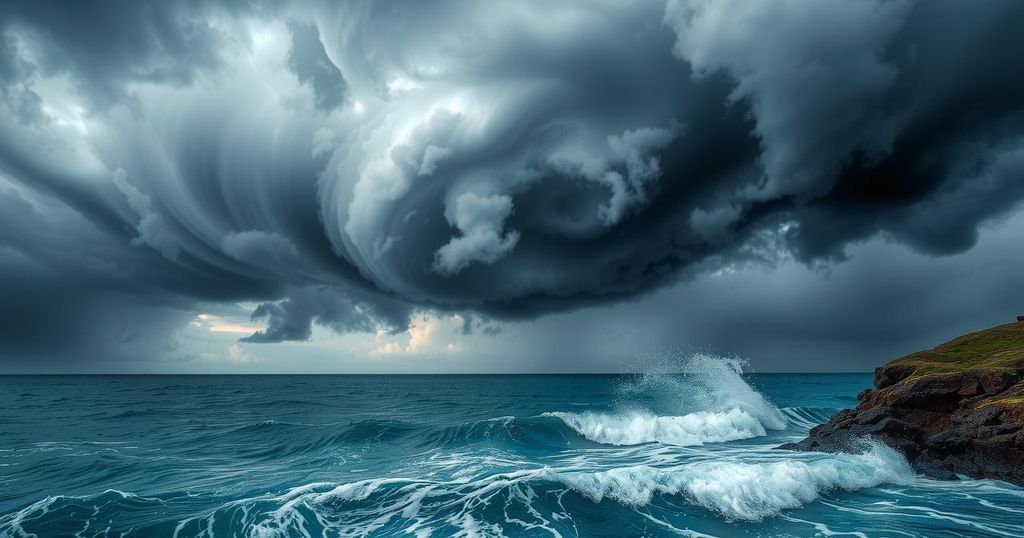Cyclone Chido: A Historic and Devastating Storm Hits Mayotte
Tropical cyclone Chido hit Mayotte on December 14, reaching wind speeds over 200 km/h and causing significant destruction. Despite timely warnings, the cyclone resulted in heavy casualties and widespread damage, prompting a national mourning in France. Météo-France reported this as the most powerful storm in 90 years for the island and noted the uncertain role of climate change regarding the event.
Tropical cyclone Chido struck Mayotte on December 14, bringing wind speeds exceeding 200 km/h and gusts surpassing 225 km/h. This was the most powerful storm to impact the island in 90 years, as reported by Météo-France. Accompanying the winds were heavy rains totaling 176 mm within 12 hours and dangerously high waves averaging over 5 meters. The cyclone’s intensity was significant enough to damage some observational structures of Météo-France.
In response to the disaster, French President Emmanuel Macron announced a period of national mourning. A major emergency and relief initiative was launched due to early reports suggesting that hundreds of individuals may have perished on the small island, which is not accustomed to such powerful tropical storms and has numerous informal housing structures. Tragically, heavy casualties occurred despite timely and precise warnings from Météo-France issued more than 50 hours prior to the cyclone’s landfall.
The alerts issued included an amber alert on December 13 at 7 AM local time, followed by a red alert later that evening, and a rare violet alert on the morning of December 14. The cyclone followed an atypical path, drifting near Madagascar, which could have weakened it, but ultimately struck Mayotte with great force, engulfing the entire island. On December 15, Chido made landfall in Mozambique, where it began to weaken but continued to deliver significant rainfall across both Mozambique and Malawi.
Météo-France commented on the uncertain influence of climate change, stating, “The impacts of Chido are above all due to its track and the direct hit on Mayotte. This is an extremely rare event not seen for 90 years.” They noted a lack of current evidence to determine how climate change may have affected the cyclone’s path and intensity. Météo-France La Réunion serves as the Regional Specialized Meteorological Centre (RSMC) for tropical cyclones in the South-West Indian Ocean.
The RSMC’s seasonal forecast, published on October 31, indicated an early cyclone season for 2024-2025, in contrast to previous seasons where impactful systems only materialized in January. This outlook predicted 9 to 13 systems for the upcoming season, with four to seven expected to reach tropical cyclone strength, highlighting the potential for increased cyclone activity prior to the end of 2024.
Tropical cyclones are significant weather events characterized by strong winds and heavy rainfall. Their impact can be particularly severe on small islands like Mayotte, which may lack the infrastructure to withstand such forces. Historical data suggests that Chido’s strength was unprecedented in recent decades for Mayotte, raising concerns among meteorologists about the implications of climate change on future cyclone patterns. Météo-France has a critical role in monitoring and predicting these storms in the South-West Indian Ocean, aiming to provide timely warnings to minimize loss of life and property damage.
The occurrence of tropical cyclone Chido serves as a stark reminder of the vulnerability of small islands to extreme weather events. While timely alerts were issued, the devastation revealed significant risks due to informal housing and inadequate preparation. As potential patterns of increased cyclone activity emerge, continued research on the impacts of climate change on cyclone intensity and frequency will be crucial to enhancing preparedness and resilience in affected regions.
Original Source: wmo.int




Post Comment